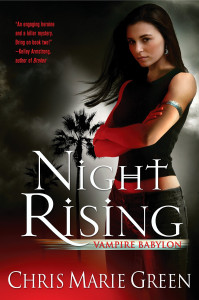 While recovering from the near-career suicidal move of assaulting a major movie star (he had it coming), stuntwoman Dawn Madison is contacted by an unusual Hollywood PI firm Limpet and Associates, because her father has gone missing. And even though she’s been estranged from her father for some time, Dawn’s not one to abandon family. After all, he’s all she had after her ultra-famous movie star mother was killed years ago. So now Dawn’s back in Tinsel Town, and the hunt for her father is about to take some extraordinarily odd turns.
While recovering from the near-career suicidal move of assaulting a major movie star (he had it coming), stuntwoman Dawn Madison is contacted by an unusual Hollywood PI firm Limpet and Associates, because her father has gone missing. And even though she’s been estranged from her father for some time, Dawn’s not one to abandon family. After all, he’s all she had after her ultra-famous movie star mother was killed years ago. So now Dawn’s back in Tinsel Town, and the hunt for her father is about to take some extraordinarily odd turns.
To start, there are her new coworkers. Kiko is a psychic little person with more than his fair share of big screen ambition. Breisi is a whiz with technology, but she’s hiding a few deep secrets. And Mr. Limpet himself is an unseen presence who communicates only through voice, leaving his true nature and identity open to question (and granting him the nickname of “The Voice” as far as Dawn is concerned). And the cases these people take on are of a decidedly supernatural bent. As in Hollywood vampires.
As Dawn and her new allies investigate the disappearance of her father, they also take on the strange case of Robby Pennybaker, a child star who died of an overdose twenty-three years ago . . . and who accidentally showed up on film three weeks ago, unchanged. Their quest for the truth will take them into some of the strangest corners of Hollywood, and expose them to mortal danger in unexpected ways. In Hollywood, legends really don’t die.
Night Rising is the first in a trilogy by Chris Marie Green, better known for her romances under the name Crystal Green, and it certainly seems as though she’s made the transition to urban fantasy without a hitch. Green plays with the Hollywood conceits perfectly, from the all-encompassing drive to “make it big” found in everyone from bartenders to gas station attendants, to the fear of falling into obscurity by those who have made it big. Hollywood’s tendency to chew up child actors and spit them out is brought up, as is the manner in which some celebrities die mysteriously, leaving behind legends.
And winding its way through all of this is a fascinatingly designed underground society of vampires whose influence on the mortal world is understated, yet impossible to ignore.
In fact, let’s address those vampires for a moment, for Green’s take on them is one of the more unusual, and certainly refreshing, I’ve seen of late. One would be hard pressed to call them the villains, or evil, for all that they do some highly immoral things, and act as antagonists. The functions they fulfill and the niche they fill is perfectly logical under the circumstances. Who can blame them for wanting to keep their existence secret? After all, they’re just trying to survive. The way their society works may not be entirely unique, but the hierarchy of Master, Second, Elites, Groupies, and Servants is well thought out, and distinct. It’s nice, as well, to see a vampire society that’s a bit more modern oriented, instead of wallowing in medieval power structures. I’ll be interested in seeing more of how it functions in upcoming books.
Another intriguing aspect of Night Rising is how it gleefully and skillfully exploits Hollywood attitude and atmosphere. This book really captures the right feel, playing upon Hollywood’s most sordid, dark aspects including that of the child star gone bad, and the rising star dead at the height of their career. Dawn has to live in the shadow of her mother, an actress and sex symbol whose untimely death turned her into a legend that would never grow old and fade away, for example.
Things are left ambiguous in Night Rising, often on purpose. Who, or what, is The Voice? There are a few insinuations, but not enough proof to really decide one way or the other. And as much as I wanted the question answered, the truth is, I was having too much fun watching how he interacted with the others to want to know too soon. I suspect the most likely answer at this point would be almost disappointing. Likewise, we’re left wondering why Dawn is key to the whole mess, and just really motivates many of the people around her, including a rival PI who also seems to be investigating the same case.
I couldn’t stop reading Night Rising once I started. Green’s delivered a fresh new take on some concepts I’d begun to grow weary of. In our celebrity obsessed culture, this book feels relevant, for all that it’s a fantasy. Her writing style is comfortable, sparkling with a certain humor, almost sassy in places (and that’s not something I’d say about just any old book). It’s certainly a little less formal, a bit more familiar than I’m used to seeing around these parts, and it’s a nice change of pace. And it’s great to see a romance writer writing an urban fantasy without doing it as a paranormal or erotic romance. I think Green’s really got something here, and I can’t wait for more in the series.
(Ace, 2007)
